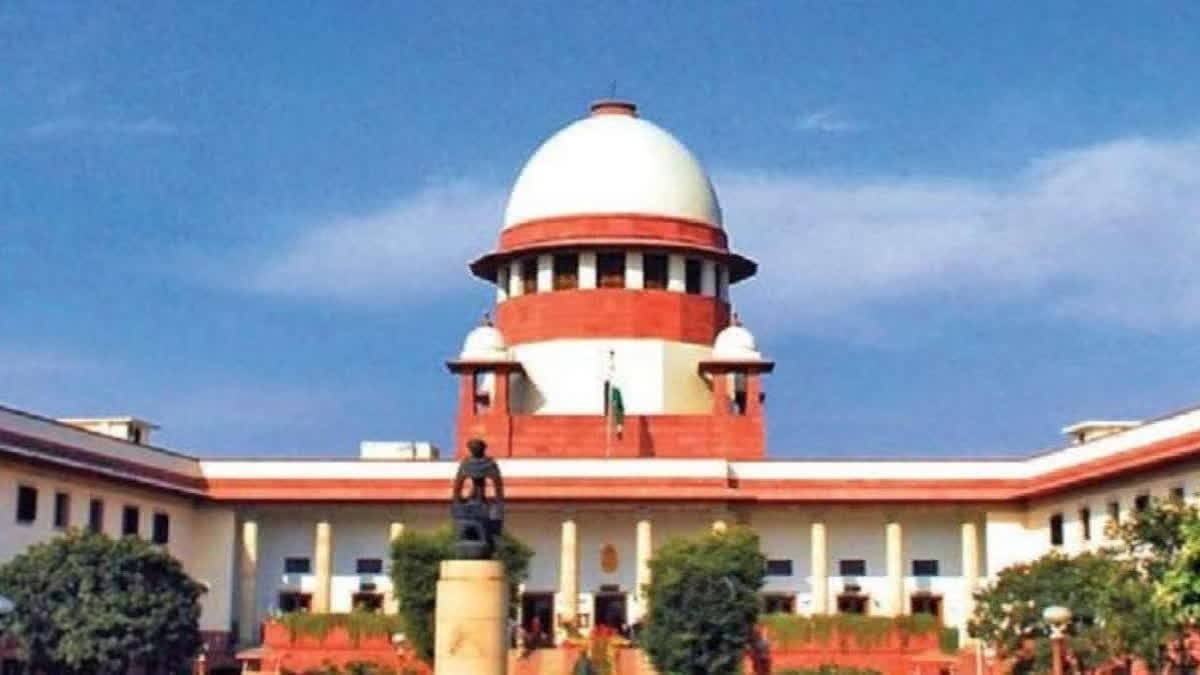New Delhi: The Supreme Court Thursday turned down a plea by the Tamil Nadu government to interfere with the Cauvery Water Management Authority (CWMA) order to Karnataka for releasing 5,000 cusecs of Cauvery water per day till September 28.
A bench led by Justice B R Gavai said the CWMA is the competent body and let it monitor the situation while refusing to interfere with the CWMA directions.
The bench, also comprising justices P S Narasimha and Prashant Kumar Mishra, asked CWMA to review and monitor the situation every 15 days and pass necessary directions. The apex court also rejected Tamil Nadu's plea for at least 7,200 cusec water per day against 5,000 cusecs of Cauvery water per day, as directed by the CWMA. The apex court also refused to entertain Karnataka's plea challenging CWMA's direction to give Tamil Nadu 5000 cusec daily till September 27.
During the hearing, the bench noted that the CWMA order had been passed considering distress situations due to poor Monsoon, average inflows and other relevant factors.
Senior advocate Mukul Rohatgi, representing Tamil Nadu, contended that as this is a deficit year, the regulatory authorities decided for Karnataka to release 7,200 cusecs of water every day to Tamil Nadu, however, the figure has been rounded off to make it 5,000 cusecs every day. Rohatgi stressed that CWMA has mechanically approved the decisions taken by the Cauvery Water Regulatory Committee (CWRC) and raised the issue of five lakh acres of standing crops in Tamil Nadu.
The bench said the CWMA is an expert body and the judges sitting inside the courtroom cannot ascertain how much each state needs. The bench further added that these are all interim measures decided by the experts’ bodies.
Additional solicitor general Aishwarya Bhati and senior advocate S Wasim Qadri, representing the Centre, said that Karnataka has supplied water as per the directions.
Senior advocates Shyam Divan and Mohan Katarki, representing Karnataka, emphasized that the order for release of 5,000 cusecs per day was against the interest of the state. The counsel submitted that here it was not only the issue of standing crops but drinking water needs of Bengaluru, Mysuru and Mandya districts of the state.
The apex court noted that CWRC and CWMA had considered all relevant factors in issuing orders, which included over 48 per cent less rainfall to arrive at its conclusion. After hearing detailed submissions, the bench said it was not inclined to interfere with the matter.
The Karnataka government, in a fresh plea, had urged the Supreme Court to direct the CWMA to reconsider its orders on the release of Cauvery River water, as those directions are perverse and liable to be declared illegal. The plea said this water year of 2023-24 has begun on a bad note and the South-West monsoon which feeds the catchment in Karnataka has failed miserably.
The Karnataka government stated that the cumulative inflows into Karnataka's four reservoirs from June 01, 2023, to September 18, 2023, are 110.875 TMC, whereas the average of the last 30 years has been 238.055 TMC.
"Therefore, even at the reservoir level itself, which covers a part of the catchment, the shortfall is 53.42 per cent. If the shortfall is considered up to the interstate border, Biligundlu, where flows are accountable, shortfall and distress would be much more than 53.42 per cent," it said.
Also read: SC: 1998 PV Narasimha Rao judgment granting immunity to MP/MLAs will be reviewed by 7-judge bench



